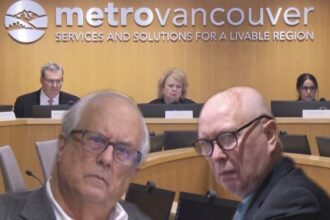In an unprecedented move that has rippled through Nova Scotia’s political landscape, Premier Tim Houston has directly contacted municipal leaders who recently voted to pause uranium exploration in their jurisdictions. The premier’s letters, obtained exclusively by CO24 News, reveal mounting tensions between provincial economic development ambitions and local environmental concerns that have defined the uranium debate for months.
“The provincial government maintains sole jurisdiction over natural resources, including minerals,” Houston wrote in his correspondence to council members from Cumberland, Colchester, and Kings counties. “While I respect the democratic process that led to your motion, I must emphasize that regulatory authority rests with the province.”
The controversial council votes came after residents raised alarm over potential environmental impacts from uranium mining operations. Cumberland County councillor Jennifer Morris told CO24 Politics that their decision wasn’t made lightly. “We heard from hundreds of constituents concerned about water quality and long-term health effects. Our pause is about ensuring proper assessment before irreversible decisions are made.“
Industry experts note that uranium exploration in Nova Scotia could represent significant economic opportunity. The province’s geological surveys have identified promising deposits that could generate an estimated $300 million in annual economic activity and create approximately 400 direct jobs according to a recent economic impact assessment commissioned by the Department of Natural Resources.
Environmental advocacy groups, however, remain steadfast in their opposition. “Uranium mining has a troubling global history of contamination that often persists for generations,” said Dr. Eleanor Sampson, director of the Atlantic Environmental Coalition. “The radioactive tailings pose particular challenges for water systems that Nova Scotia may not be equipped to manage.”
The provincial government’s position has found support from the Mining Association of Nova Scotia. “Modern extraction methods have dramatically reduced environmental impacts,” the association’s president, James Henderson, told CO24 Business. “We’re talking about rigorous safety protocols that exceed international standards.”
Premier Houston’s letter also emphasized the province’s commitment to responsible resource development. “We have some of the most stringent environmental assessment processes in North America. No project proceeds without comprehensive scientific review and public consultation.”
Municipal leaders remain unconvinced. Kings County councillor Maria Chen noted: “We’re not categorically against resource development, but the pace matters. Our communities deserve thorough consultation and independent environmental reviews before exploration permits are granted.”
The dispute highlights growing tensions in Canada News between provincial authority and municipal autonomy in resource decisions. Constitutional experts note that while provinces hold legal jurisdiction over natural resources, the practical implementation of projects often requires local cooperation.
As this standoff continues, both sides appear entrenched in their positions. The premier has requested meetings with each municipal council to discuss “a collaborative path forward” while maintaining the province’s ultimate authority. Meanwhile, community organizations are planning public forums to mobilize further opposition.
The fundamental question emerging from this conflict extends beyond uranium: in an era of increasing environmental consciousness and demands for local input, how can Canada balance resource development with community consent and ecological protection?






















